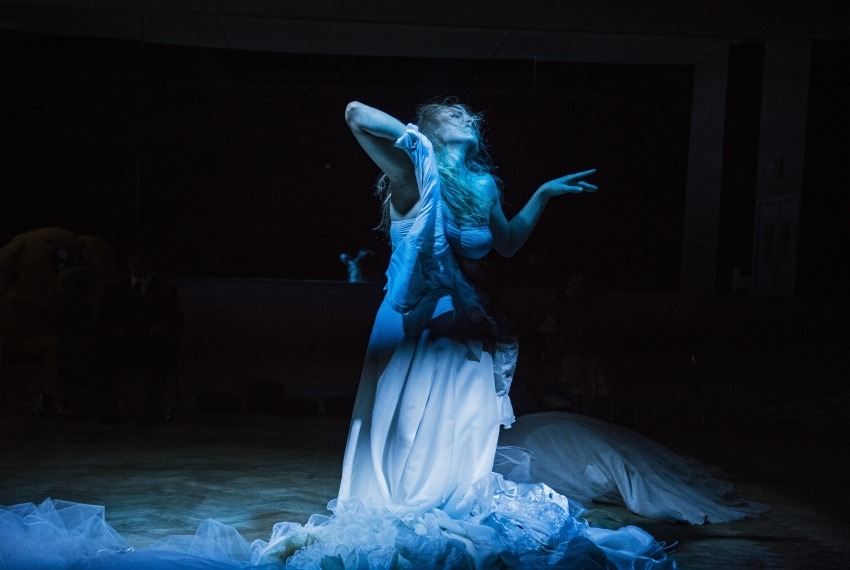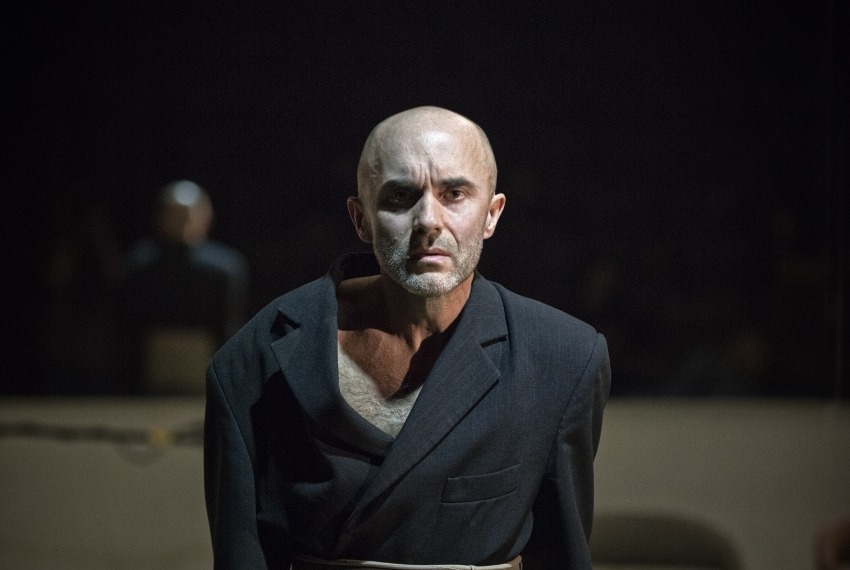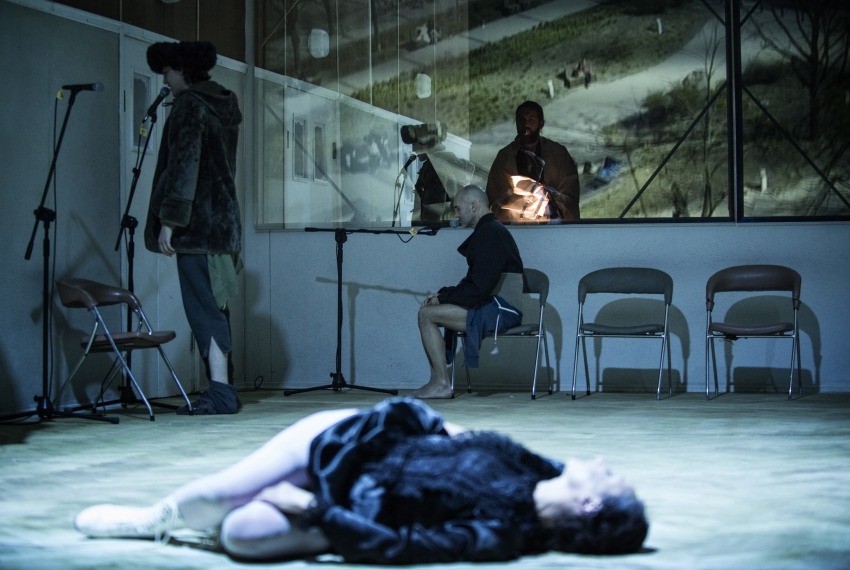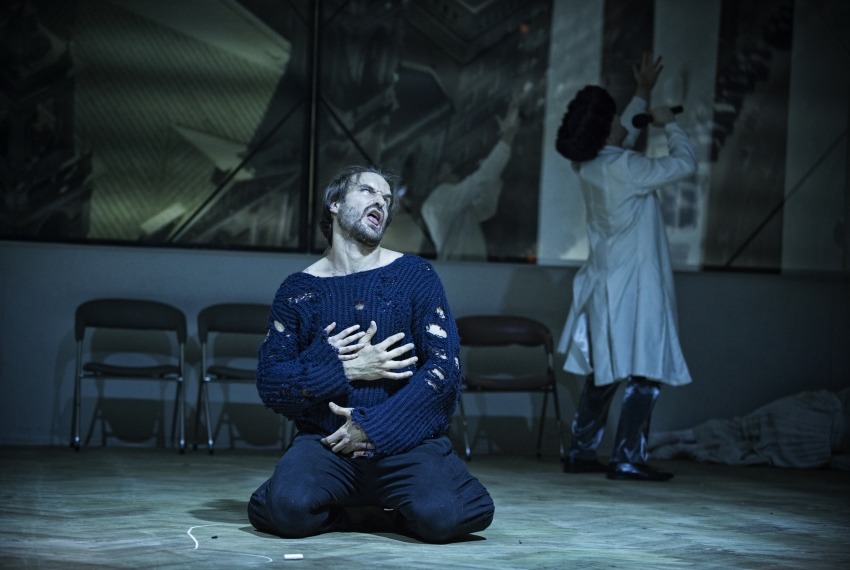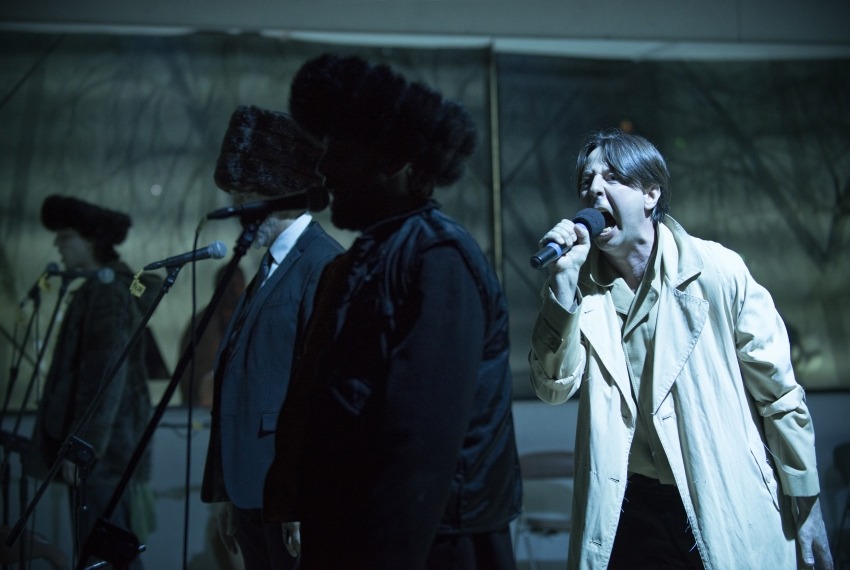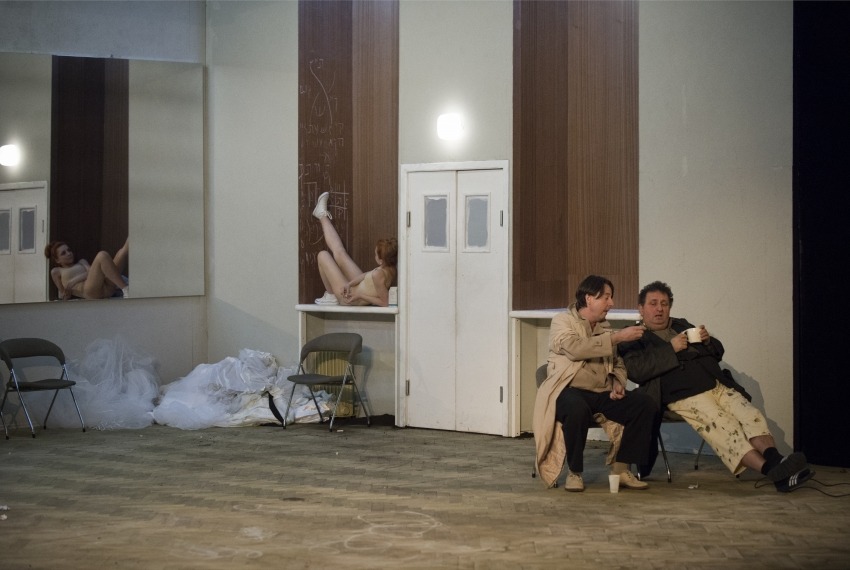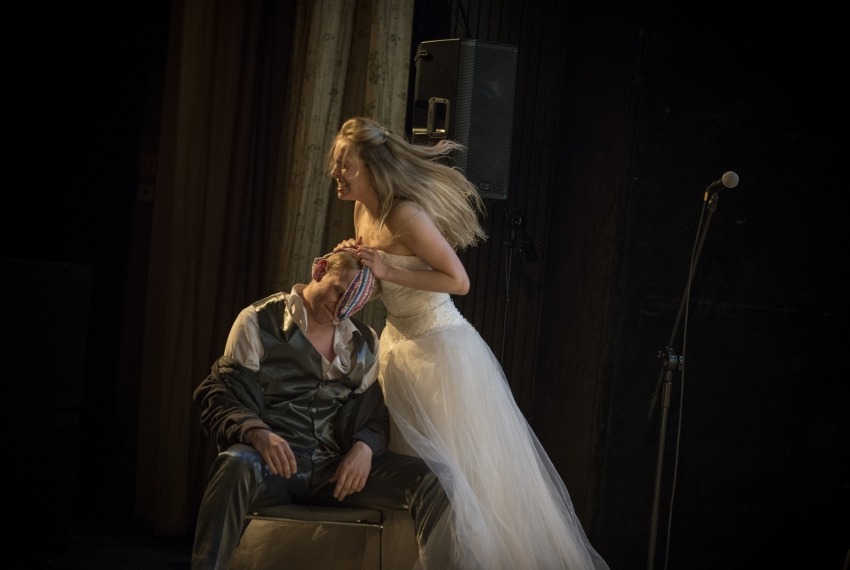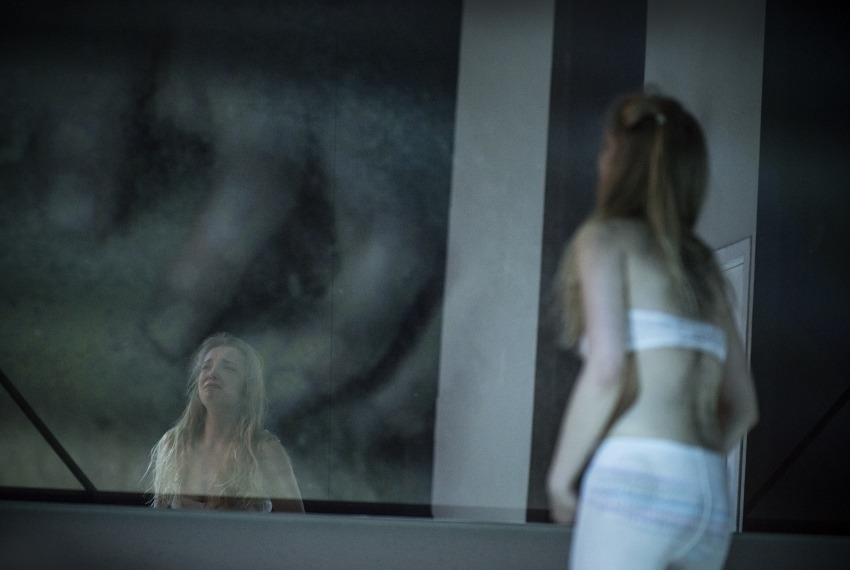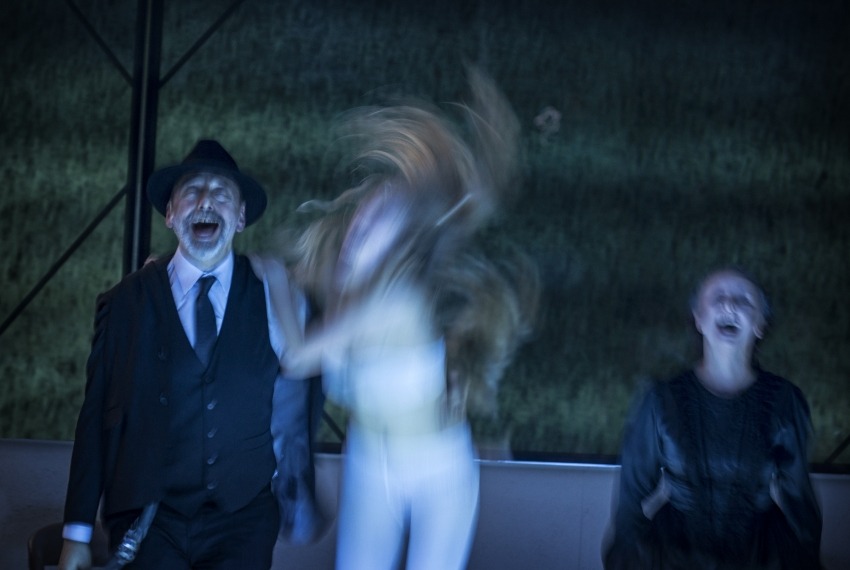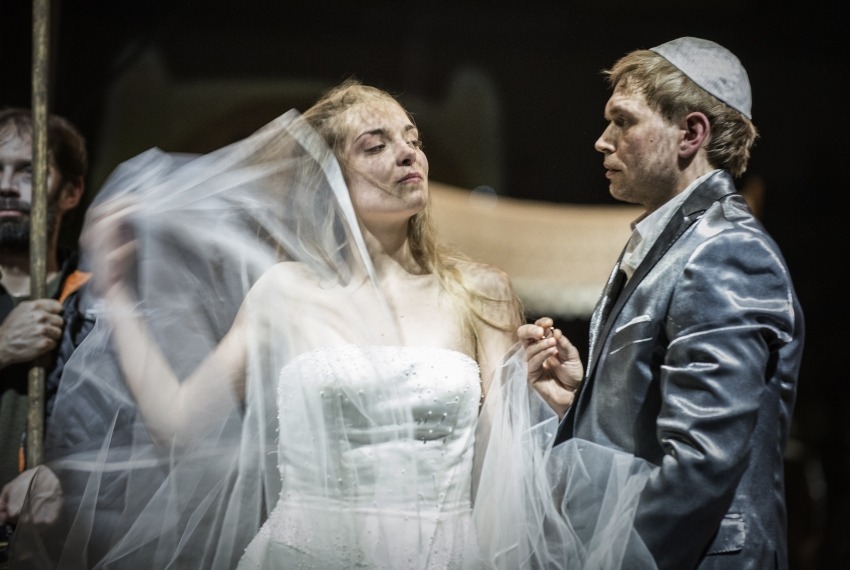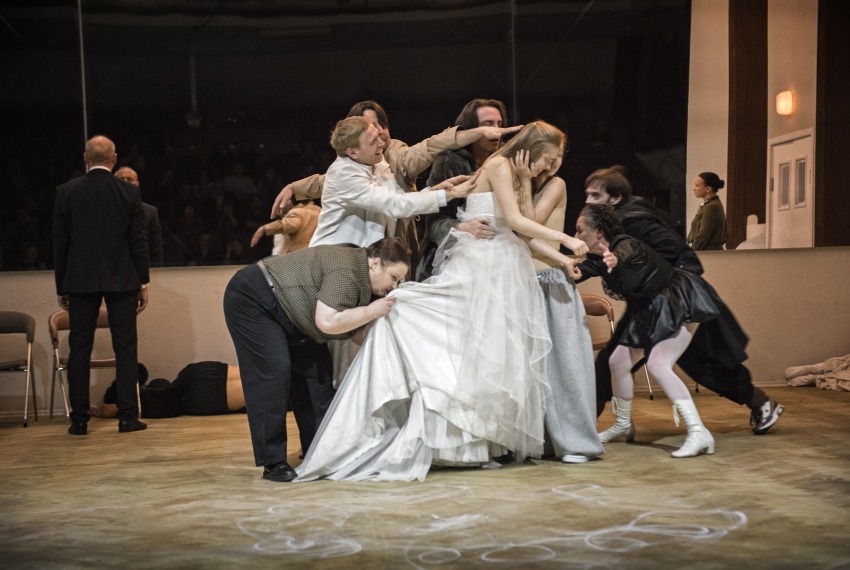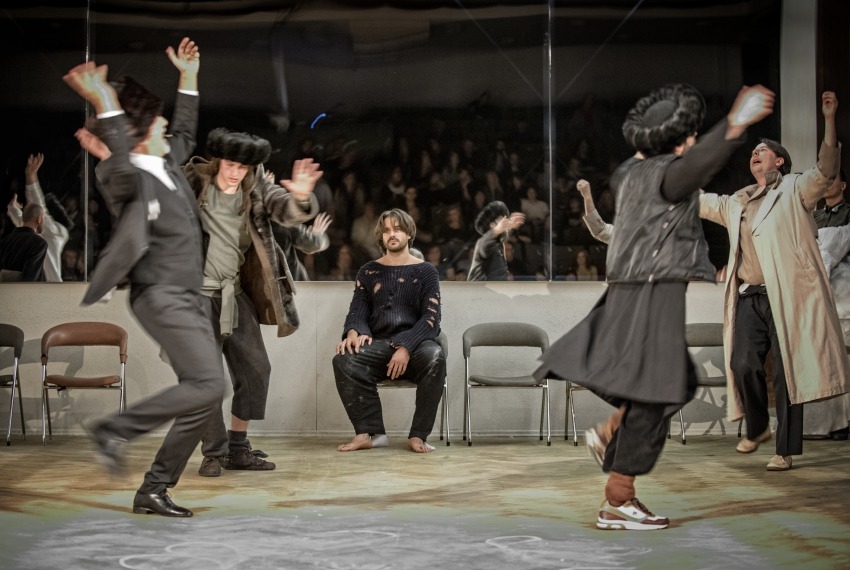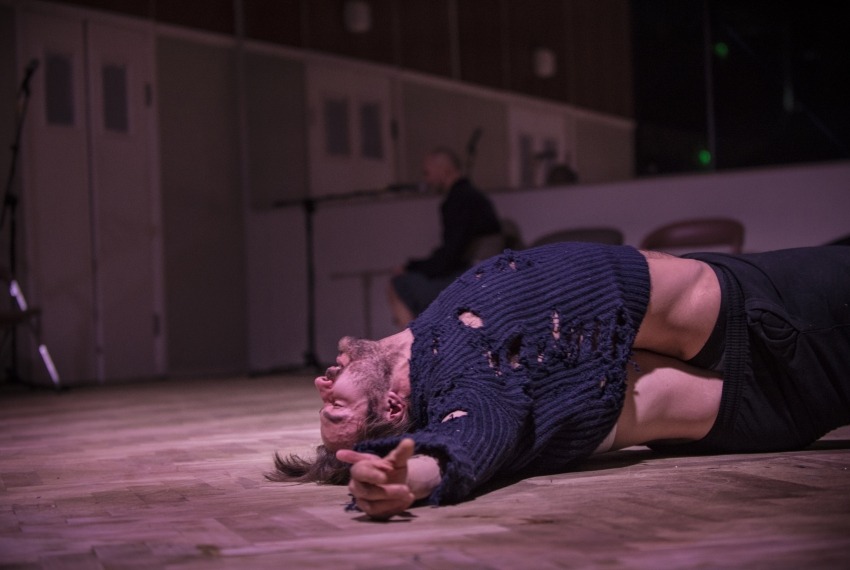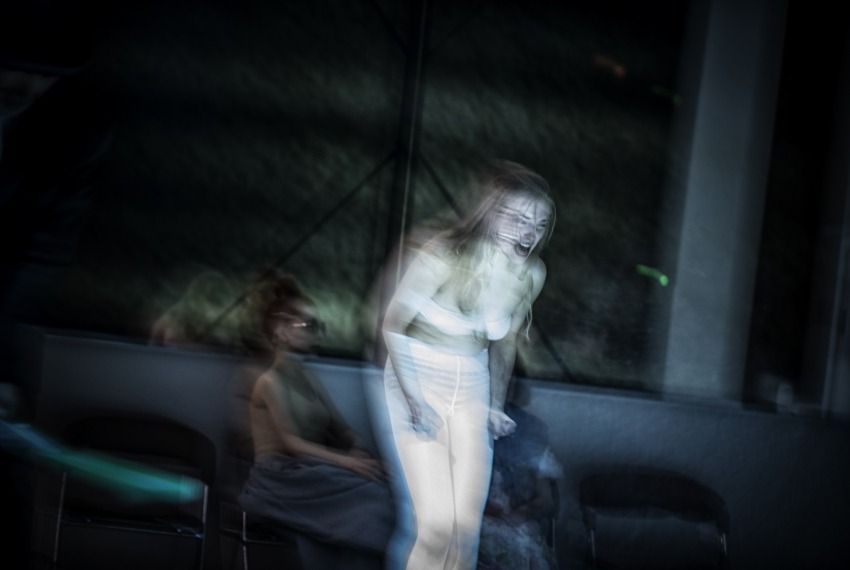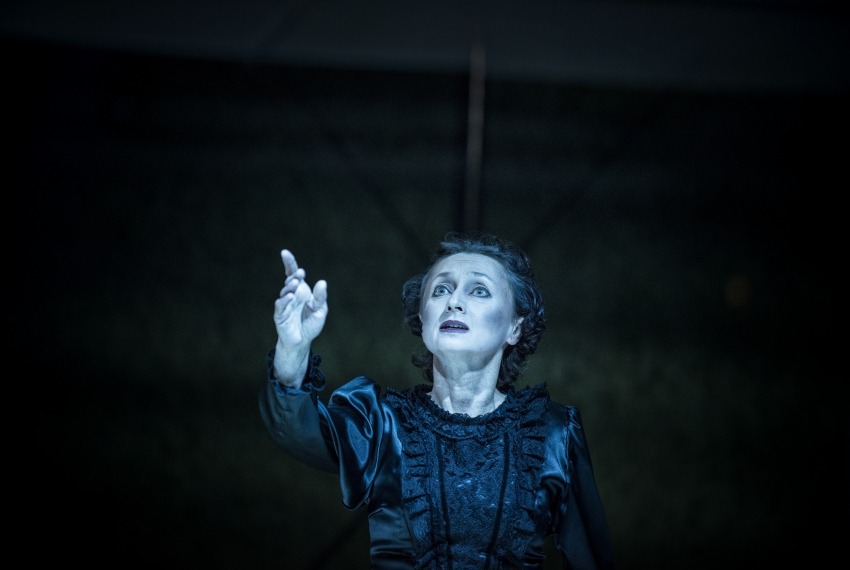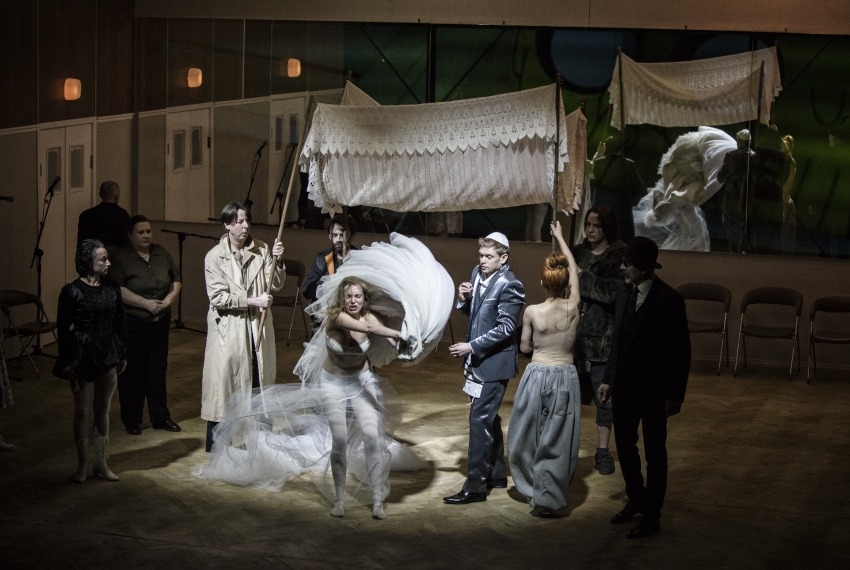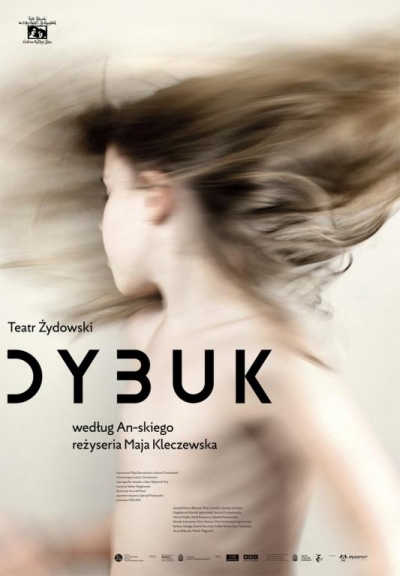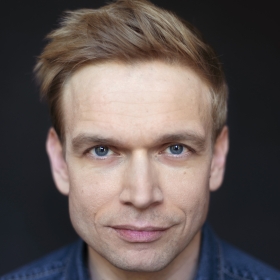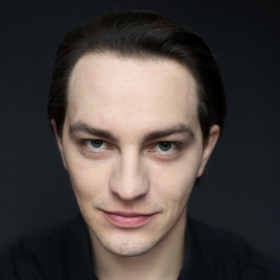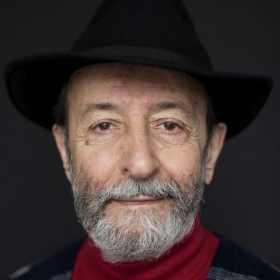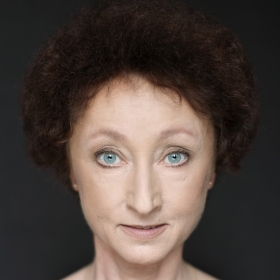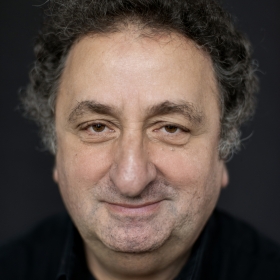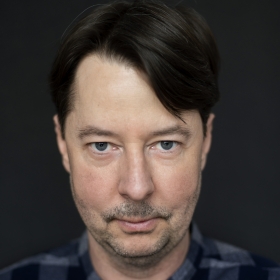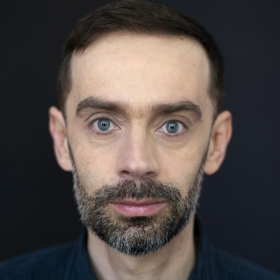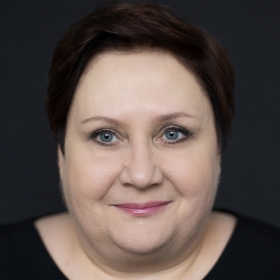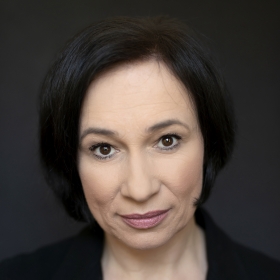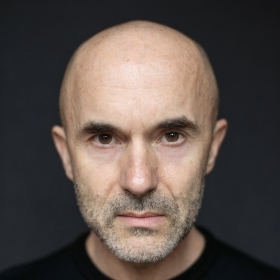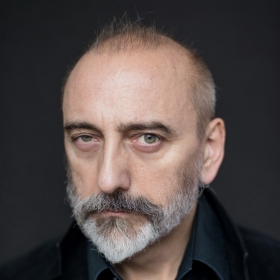Jesteś tutaj
The Dybbuk
Spektakl
“And I keep seeing their faces, I look into their eyes - they are not there - I think and dream, see them in the theatre spaces. […]”
(S. Wyspiański, “And I keep seeing their faces”)
In 1939, Warsaw was the biggest cluster of Jews in Europe and the second, right after New York, Jewish cluster in the world. Warsaw Ghetto, where in 1941 the number of imprisoned Jews reached 450 thousand, spread across 307 hectars and despite nearly complete annihilation, it blended permanently and tangibly in the city tissue of Warsaw. We must always remember it and keep talking about it. We must talk about everyday life, culture, individual people who lived and died there. It is our obligation, the obligation of the people living in the very place where the mass extermination of humanity took place.
The show “The Dybbuk” has been based on the classical Jewish drama by S. Ansky, Yiddish “Romeo and Juliet”, a folk legend telling the story of the soul of the deceased Yeshiva student who enters the body of his beloved. Maja Kleczewska and Łukasz Chotkowski put the story in a broader context, making it a story of a broken alliance between the nations and about the returning memory. This way, a very particular importance is given to the history and the space of the Jewish Theatre built in the center of the prewar Jewish district and in the area of the former Warsaw Ghetto. Ansky's drama is extended with additional stories of ghetto citizens as well as victims and survivors of Holocaust. The director and the producers seem to tangibly bring back to life, make visible; they confront the contemporary times with those who left but got “stuck” with us, the living, for good. The essence of the performance is to call the Life to appear on the stage, which due to its origins has been cut. During the time of revisiting threat of totalitarian ideologies and wars, we must remind about the murdered people, their Life, in order to prevent the history coming full circle.

